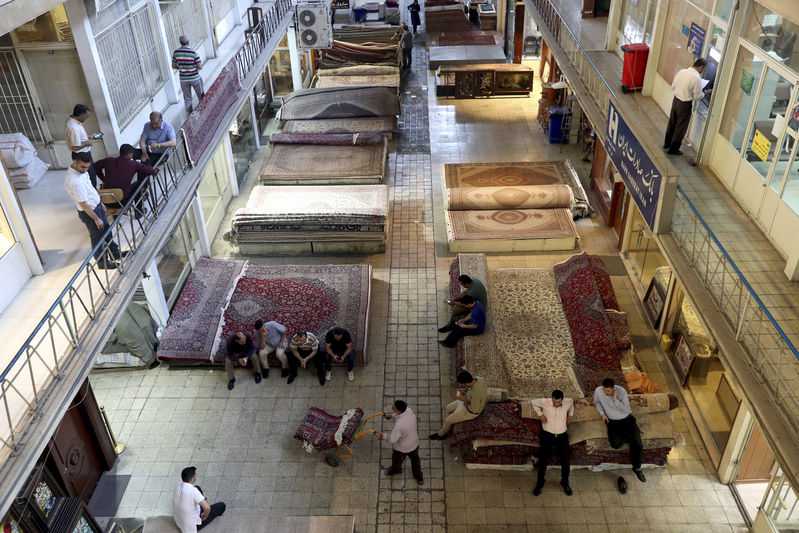Iranians: Our ‘bones breaking’ under U.S. sanctions
25 June, 2019

As the United States piles sanction after sanction on Iran, it’s the average person who feels it the most.
From a subway performer’s battered leather hat devoid of tips, to a bride-to-be’s empty purse, the lack of cash from the economic pressure facing Iran’s 80 million people can be seen everywhere.
Many blame U.S. President Donald Trump and his maximalist policy on Iran, which has seen him pull out of Tehran’s 2015 nuclear deal with world powers and levy punishing U.S. sanctions on the country.
But alongside Trump, many Iranians blame their own government, which has careened from one economic disaster to another since its Islamic Revolution 40 years ago.
“The economic war is a reality and people are under extreme pressure,” said Shiva Keshavarz, a 22-year-old accountant soon to be married.
She said government leaders “keep telling us to be strong and endure the pressures, but we can already hear the sound of our bones breaking.”
Walking by any money exchange shop is a dramatic reminder of the hardships most people are facing. At the time of the nuclear deal, Iran’s currency traded at 32,000 rials to $1. Today, the numbers listed in exchange shop windows have skyrocketed — it costs over 130,000 rials for one U.S. dollar.
Inflation is over 37 percent, according to government statistics. More than 3 million people, or 12 percent of working-age citizens, are unemployed. That rate doubles for educated youth.
Depreciation and inflation make everything more expensive — from fruits and vegetables to tires and oil, all the way to the big-ticket items, like mobile phones. A simple cell phone is about two months’ salary for the average government worker, while a single iPhone costs 10 months’ salary.
“When importing mobile phones into the country is blocked, dealers have to smuggle them in with black market dollar rates and sell them for expensive prices,” said Pouria Hassani, a mobile phone salesman in Tehran. “You can’t expect us to buy expensive and sell cheap to customers. We don’t want to make a loss either.”
Hossein Rostami, a 33-year-old motorbike taxi driver and deliveryman, said the price of brake pads alone had jumped fivefold.
“The cause of our problems is the officials’ incompetence,” he told The Associated Press as fellow motorbike drivers called out for passengers in Tehran. “Our country is full of wealth and riches.”
The riches part is true — Iran is home to the world’s fourth-largest proven reserve of crude oil and holds the world’s second-largest proven reserve of natural gas, after Russia.
But under Trump’s maximum-pressure campaign, the United States has cut off Iran’s ability to sell crude on the global market, and threatened to sanction any nation that purchases it. Oil covers a third of the $80 billion a year the government spends in Iran, meaning that a fall in oil revenues cuts into its social welfare programs, as well as its military expenditures.
The rest of the country’s budget comes from taxes and non-oil exports, among them oil-based petrochemical products that provide up to 50 percent of Iran’s $45 billion in non-oil export.
Source:
